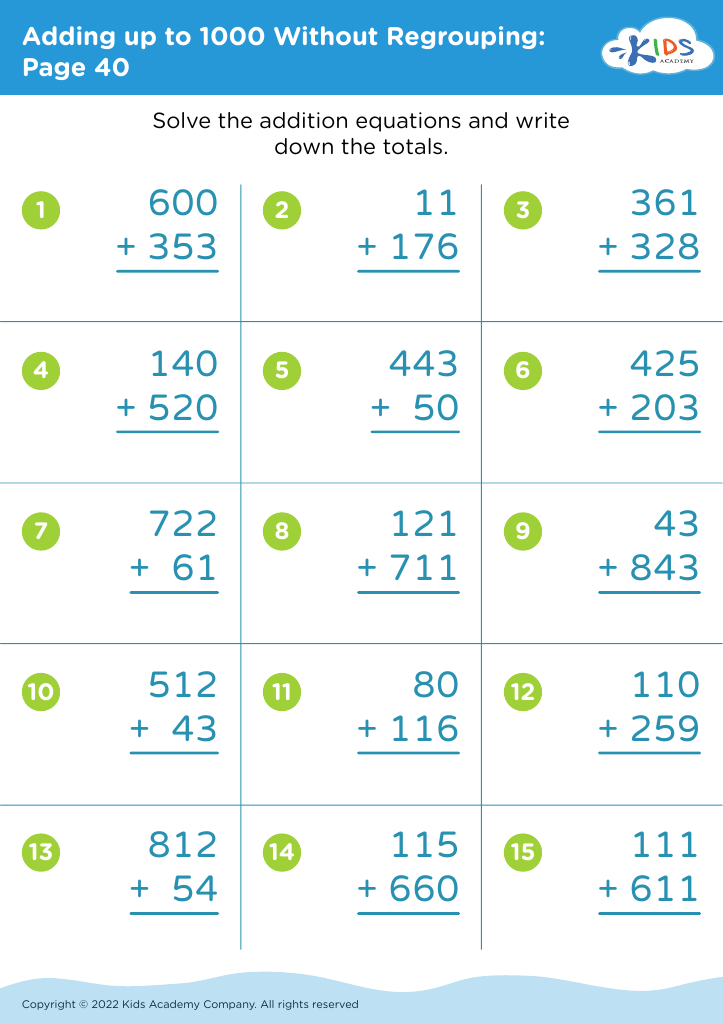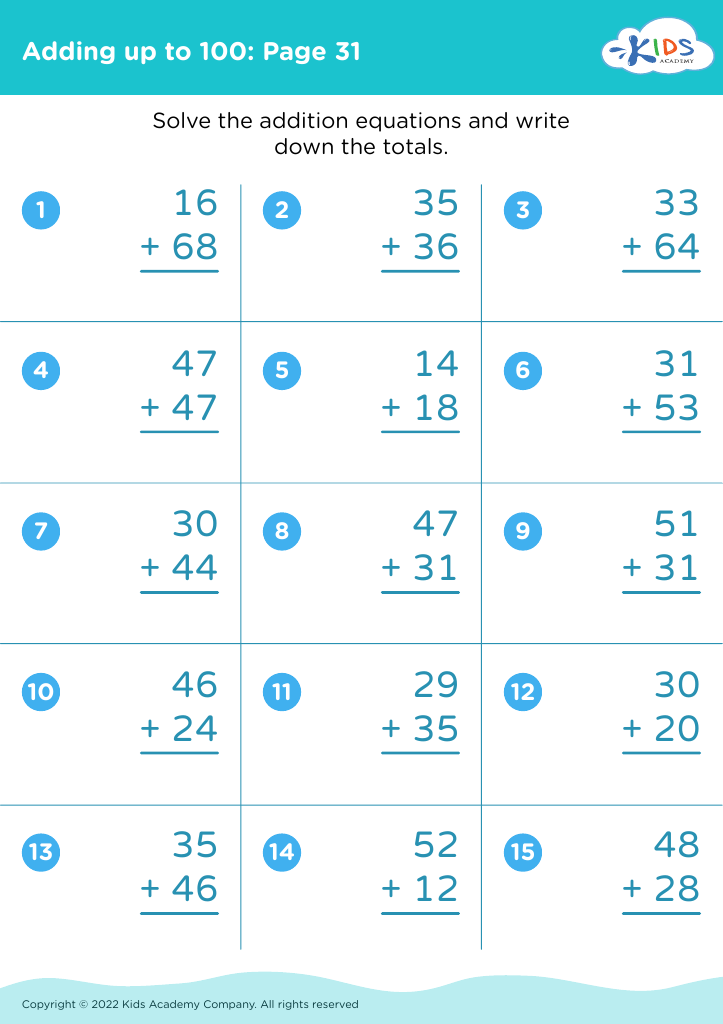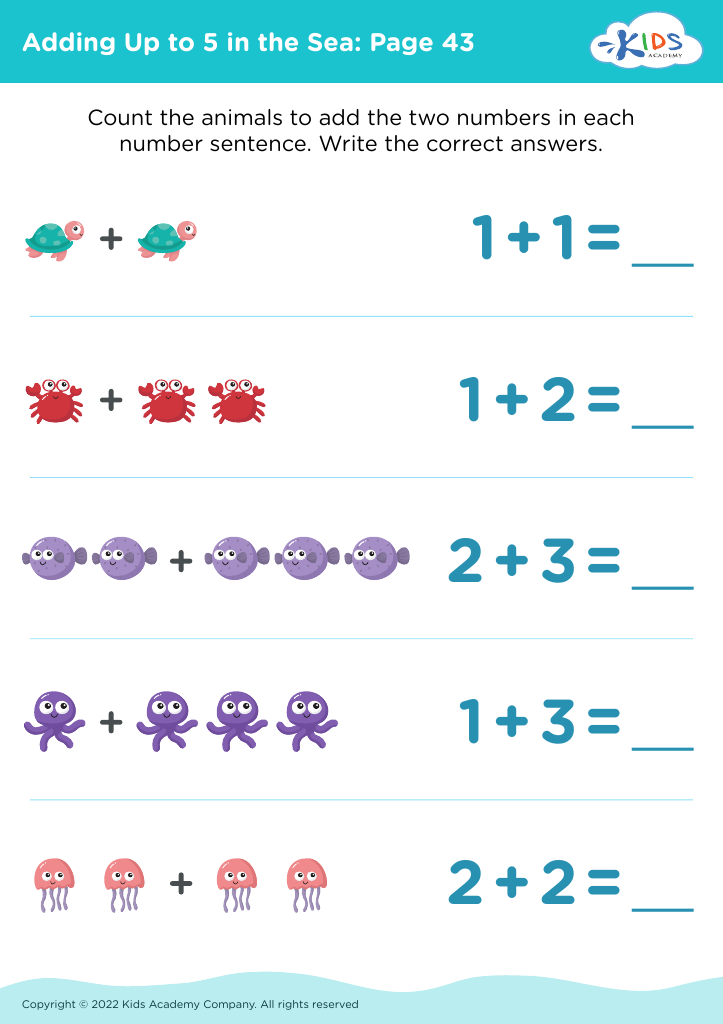Enhance concentration Addition Worksheets for Ages 3-8
5 filtered results
-
From - To
Introduce your young learners to math with our "Enhance Concentration Addition Worksheets for Ages 3-8". These engaging, age-appropriate worksheets are specially designed to improve both math skills and attention spans. Our fun, colorful exercises not only help children practice basic addition but also enhance their ability to focus and concentrate. Perfect for preschool through early elementary grades, these worksheets cater to different learning styles with interactive activities and imaginative tasks. Whether used at home or in the classroom, our addition worksheets provide a strong foundation in math while making learning enjoyable and effective. Unlock the potential in your child today!
Enhancing concentration in children aged 3-8 is crucial for their overall development and academic success. This period is known as a golden phase for cognitive development, where young brains are highly adaptable and capable of rapid learning. By focusing on improving concentration, parents and teachers can positively influence this developmental trajectory.
Strong concentration skills enable children to absorb new information, solve problems, and engage deeply with tasks, fostering better comprehension and retention. With improved concentration, children are more likely to practice critical thinking and problem-solving skills, establishing a solid educational foundation. This not only sets the stage for future academic achievements but also builds essential life skills, including persistence and resilience.
Furthermore, when children can concentrate well, they are often more engaged and less disruptive in class, creating a more conducive learning environment for all. Enhanced concentration also promotes better emotional regulation, leading to fewer behavioral issues and improved social interactions.
Activities such as puzzles, practiced mindfulness, and structured play can aid in lengthening attention spans. By investing in these strategies, parents and teachers can empower children to navigate the complexities of learning and personal growth more effectively. In sum, nurturing concentration in young children can yield significant educational and developmental benefits that last a lifetime.





















